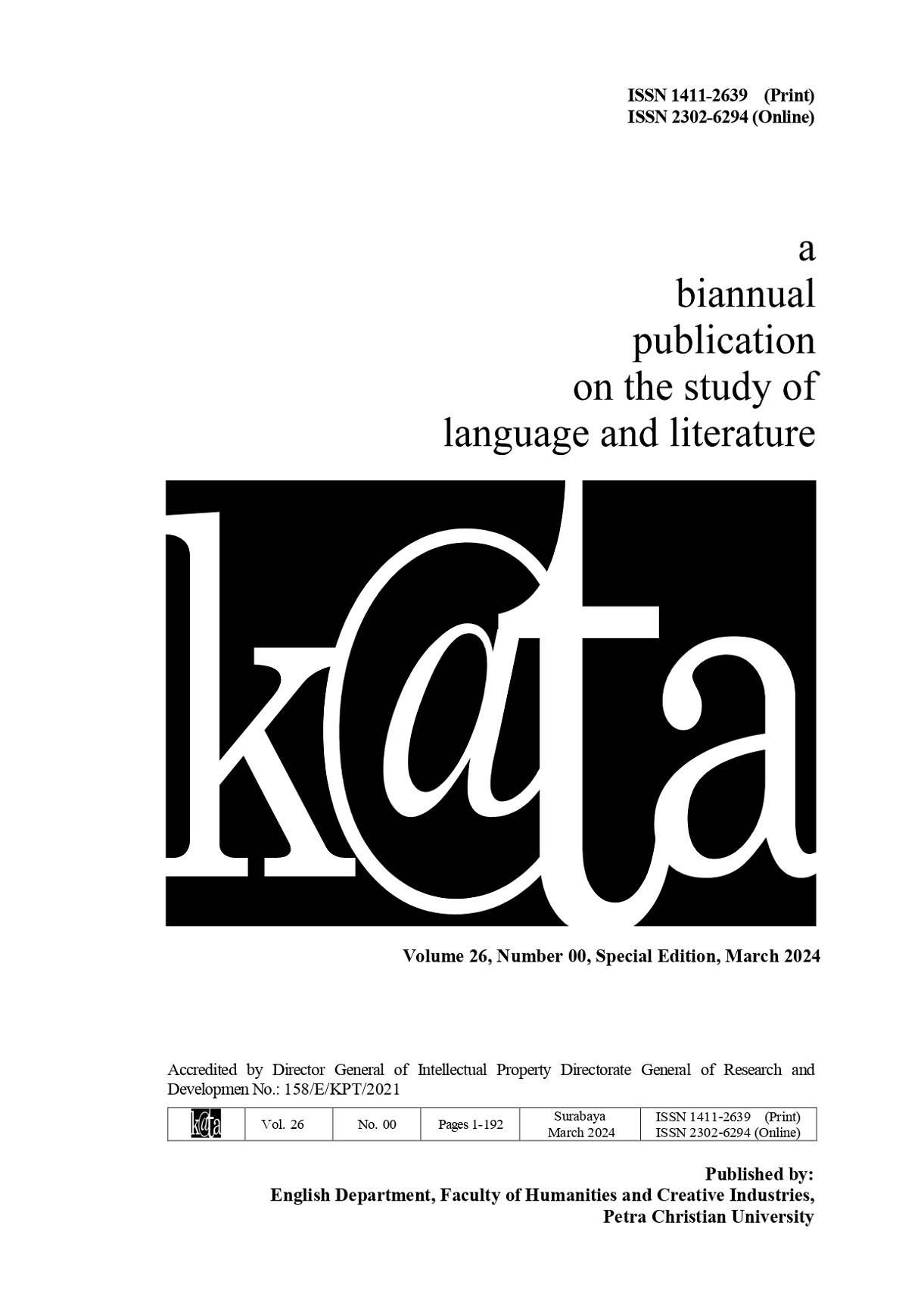Fears and Challenges of Acting in the Pandemic Time
DOI:
https://doi.org/10.9744/kata.26.00.101-110Keywords:
Acting, Action Research, Covid-19, Drama, E-Learning, Online Platform, TheaterAbstract
E-learning has become a popular approach today. However, in drama/theater classes where exercises, rehearsals, and ‘productions’ are done on stage, such an approach was considered impossible, until Covid-19 pandemic strike occurred. The purpose of this paper is to reveal how acting classes dealt with the disruption, the process of selecting and implementing online meeting platforms, the new ‘lesson plan’ to finish the classes, the challenges due to the changes, and evaluation for future practices. The nature of the study is both explanatory and evaluative by action research. Primary data were collected using personal observations and questionnaires. Secondary data were taken from library research pertaining drama/theater, e-learning, online teaching, action research, thematic analysis, etc. By flipping from offline to online learning, acting classes turned out to be manageable. Radical and innovative adaptations should be made to make classes work online, including flipping offline to online meetings, implementing screen/camera knowledge, and using online platforms such as Google Meet, Zoom, WA, and LINE. Moreover, despite the fact that initially online meeting was threatening to the students and the teacher alike, using online meeting platforms for acting classes as blended learning was a good challenge, given appropriate situations and purposes.
Downloads
References
Diermeier, D., & Van Mieghem, J. A. (2000). Spon¬tane¬ous Collective Action (No. 1302). Discussion Paper.
Digital disruption. (n.d.). University of Cambridge. https://www.jbs.cam.ac.uk/executive-education/open-programmes/ strategy/digital-disruption/ retrieved, May 23, 2022.
Djalante, R., J. Lassa, D. Setiamarga, A Sudjatma, M. Indrwan, and B. Haryanto. (2020). Review and analysis of current responses to COVID-19 in Indonesia: Period of January to March 2020. Progress in Disaster Science 6, 100091, http://dx.doi.org/10.1016/j.pdisas.2020.100091
Ehrlich, J.A., S. Ghimire, M. Khraiche, and M.F. Raza. (202). COVID-19 countermeasures, sporting events, and the financial impacts to the North American leagues. Managerial Finance. DOI: 10.1108/MF-05-2020-0275
Frenc, N. (2020). Property valuation in the UK: Material uncertainty and COVID-19. Journal of Property Investment & Finance. DOI: 10.1108/JPIF-05-2020-0053
Ghosh, J. (2020). A critique of the Indian govern¬ment’s response to the COVID-19 pandemic. Journal of Industrial and Business Economics, 47, 519–530, https://doi.org/10.1007/s40812-020-00170-x
Heriyanto. (2018). Thematic analysis sebagai metode untuk menganalisa data untuk penelitian kuali¬tatif [Thematic analysis as a method to analyze qualitative data]. ANUVA, 2(3), 317-324.
ILO. (2020). Dalam menghadapi pandemi: Memasti¬kan keselamatan dan kesehatan di tempat kerja [In facing the pandemic: Ensuring survival and safety in the workplace]. https://www.ilo.org/wcmsp5/groups/public/---asia/---ro-bangkok/---ilo-jakarta/documents/publication/wcms_742959. pdf
Kuning, D.S. (2021) Culture Shock: Online learning in the Covid19 pandemic phase. Jurnal Humaniora dan Ilmu Pendidikan (Jahidik), 1(1), 55-62. https://doi.org/10.35912/jahidik.v1i1.357
Liauw, T.J., Wijaya, H.P.S., & Maer, M.N.D. (2021). From daring to caring: Pandemic best practices in higher education. Eds. LPPM UK Petra.
Zhang, H. (2020). China’s employment stabilization policies in response to the impact of the COVID-19 pandemic. International Journal of Sociology and Social Policy. DOI: 10.1108/ IJSSP-05-2020-0167.
Downloads
Published
How to Cite
Issue
Section
License
![]() This work is licensed under a Creative Commons Attribution License
This work is licensed under a Creative Commons Attribution License



.png)
.png)

















